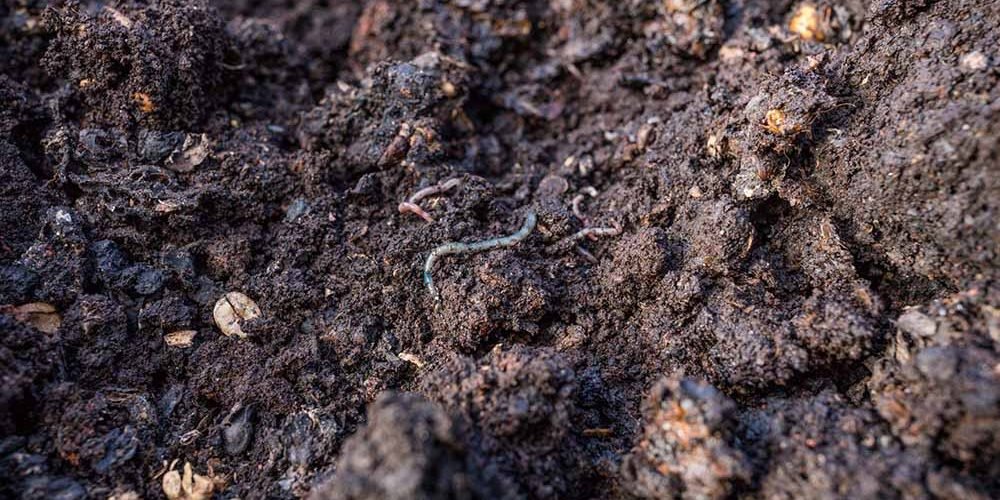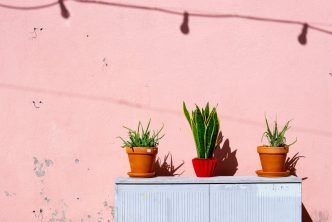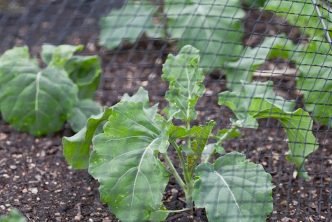Suppose you’ve been composting for a while. In that case, you’ll recognize the thrill of turning your compost pile and seeing all of the beautiful, dark, rich soil that has been generated.
But what if your most recent batch of the compost pile is struggling? To swiftly resolve the problem, you must identify the indicators that your compost is not decomposing.
The first indicator is that your compost smells awful. It lacks the earthy aroma and instead smells like rotten eggs. Another possible reason for your compost not working is the absence of worms in the compost.
Table of Contents
What is Compost, and How Does It Work?
Composting is a meticulous, aerobic process that converts biodegradable materials into nutrient-rich minerals or mulch via ecological breakdown.
The end product is a dark, gritty, earthy-smelling material made from trash. Organisms feast on the garbage introduced to the compost pile throughout the composting process. Carbon and nitrogen are required for development and reproduction, water for digestion, and oxygen for breathing.
Composting accelerates disintegration by creating an optimal environment for bacteria, fungi, and other decomposing organisms to operate. The degraded substance that follows, typically mimicking a fertile garden, is known as compost.
Composting is an essential technique for improving large-scale agricultural systems. Compost for Vegetable Garden includes three ingredients: nitrogen, phosphorus, and potash. Other essential elements found in trace levels are calcium, magnesium, iron, and zinc.
It is a natural alternative to modern pesticides, which include hazardous chemicals. To research, compost has increased soil moisture content, richness, and sturdiness.
When organic garbage decomposes in a landfill, methane, a potent greenhouse gas, is created. Composting reduces carbon emissions by diverting biodegradable trash from landfills.
Composting also contributes to water conservation. Because compost-amended soil retains water lengthier than untreated soil, plants require less water. This is especially crucial in drought-prone areas.
Overall, composting is advantageous to both the economy and the planet. It reduces waste, conserves water, and improves soil quality.
5 Sings Your Compost is Not Breaking Down
1. Compost Smells Bad
A well-balanced composting heap should not stink. Suppose your composting carries a foul smell and does not resemble that. In that case, something needs to be corrected. Your compost pile needs to warm up more and tear down the organic material more.
An anaerobic compost pile smells like rotten eggs or decaying vegetables. This signifies that there is insufficient oxygen to support aerobic microorganisms. Hence anaerobic microbes abstain from the desired compost to be formed.
Unfortunately, as a byproduct, they create hydrogen sulfide, which smells like rotten eggs. If you detect a terrible odor emanating from your compost heap, inspect the conditions within to determine if you can do anything to fix the situation.
One exception to the above rule is decomposing dung in your compost pile. This will usually stink until the manure decomposes.
To mask the odor of composting manure, bury the heap with 6-12 inches of hay, twigs, or newspapers. This will significantly lessen the smell of composting waste. Manure is a great compost for a vegetable garden as it consists of many nutrients and acts as a natural fertilizer.
2. Too Wet
When compost becomes excessively moist, it indicates that it is not decomposing correctly. The fundamental cause is a lack of oxygen, which prevents microbes from breaking down organic materials.
Aerobic bacteria are the microscopic microbes that cook compost. It cannot survive in an oxygen-deficient environment. Because the compost is excessively damp, the microorganisms drown and cannot decompose the organic materials. This can occur if the composting process is too dense, has insufficient ventilation, or is stored in an airtight container.
Another reason compost may be overly moist is there’s an excessive amount of water present. Microbes can only decompose organic materials slowly when there is enough water.
Fresh materials in significant quantities are a major cause of a compost pile getting too damp. New materials, such as vegetable scrapings and grass clippings, are heavy due to their high water content.
It might get compacted if you add excessive amounts to the compost pile at once. This will result in the removal of air or the filling of air gaps with water.
Ingredients like shredded prunings, sawdust, straw, and ripped cardboard form channels inside the composting that keep air from permeating and surplus moisture from draining away.
Suppose you don’t have enough of these dry materials on hand. In that case, you can use rumpled-up newspaper as an excellent short-term solution.
3. No Worms or Bugs in the Pile
Turning over a good compost with a pitchfork should reveal a multitude of worms, mites, and mycelium. The components will also be broken down by earthworms, isopods, beetles, and other soil-dwelling insects.
If the compost bin is new and there is no other compost nearby, it will take longer for those microorganisms to migrate in. The presence of worms in a compost pile indicates that the organic waste decomposes.
Worms devour organic debris and aerate the compost, hastening the decomposition process. If there are no worms, this might suggest that the composting is not decomposing correctly.
We understand if you want to maintain a pest free garden but worms and bugs are an essential part of gardening and are required to ensure that your compost is breaking down to be used in the garden.
This is due to several factors. Worms may be absent from a compost pile if the temperature has dropped too low. Worms are cold-blooded organisms, and when the temperature drops, their activity level diminishes.
Worms will leave if the compost pile does not receive enough oxygen. The worms require oxygen to break down organic stuff. Not to mention that worms may be absent from a compost pile if the moisture content is too low.
Worms require moisture to survive, and they will abandon an overly dry compost pile. A compost pile’s optimal moisture content ranges from 40 to 60 percent.
4. Chemical Imbalance
A chemical mismatch in a compost heap indicates that the compost is not breaking down since the microorganisms that disintegrate the organic waste in the compost pile require a specific carbon-to-nitrogen ratio to survive.
If the carbon-to-nitrogen ratio is too high, microbes cannot break down organic materials, and the compost pile will not disintegrate.
Microbes require a consistent supply of energy, whereas nitrogen offers an easily digested surge of energy that enables them to increase exponentially.
Microbes begin to increase as they feed on the fresh green matter in the core of the compost heap when it is rotated or mixed. This flurry of activity generates heat, which aids in the breakdown of the substance.
Eventually, the microorganisms either generate enough heat to kill themselves or absorb all available nitrogen, causing reproduction to slow.
In any case, the pile begins to cool and will not heat up again unless it is stirred and new green material is added to the middle. If there is too much carbon, the microorganisms will not have enough food to multiply and heat up the pile’s core.
5. Compost Caught Fire
If your composting pile catches fire, it’s a warning that it’s not decomposing. The rationale is that composting process must be damp to decompose effectively. If the compost pile becomes too dry, it will catch fire.
To produce a good compost pile, you must have the proper material ratio. More brown resources are required than green materials. Dead leaves, twigs, and branches are examples of brown materials.
Green resources include grass clippings and food waste. You must also ensure that the compost pile is wet. The substance will catch fire if it becomes too dry. If your compost pile is on fire, add brown materials and keep it damp.
You should remember that while an overabundance of browns is typical, an excess of greens has a negative effect. Nitrogen fertilizers can lead your compost to overheat and possibly spontaneously burn, posing a severe fire danger.
Compost burns are uncommon and are more likely to occur in large compost piles. However, your pile may still become hot, and a hot pile can scorch or kill your seedlings if not permitted to cool over some time.
By ensuring that your compost is breaking down and keeping a look out for signs that it isn’t you can easily make a perfect garden. Since compost will act as a natural fertilizer and improve soil fertility and water retention capabilities.
Final Words
There are at least five indicators that your compost is struggling, and is not decomposing properly. We’ve spoken about the signals you should check so that you can ensure that your compost pile is decomposing.
If you see any of these indicators, it’s time to get your compost pile back on track. Finally, we recommend that you have a balance of moist and dry components in your compost pile.
Until next time!





